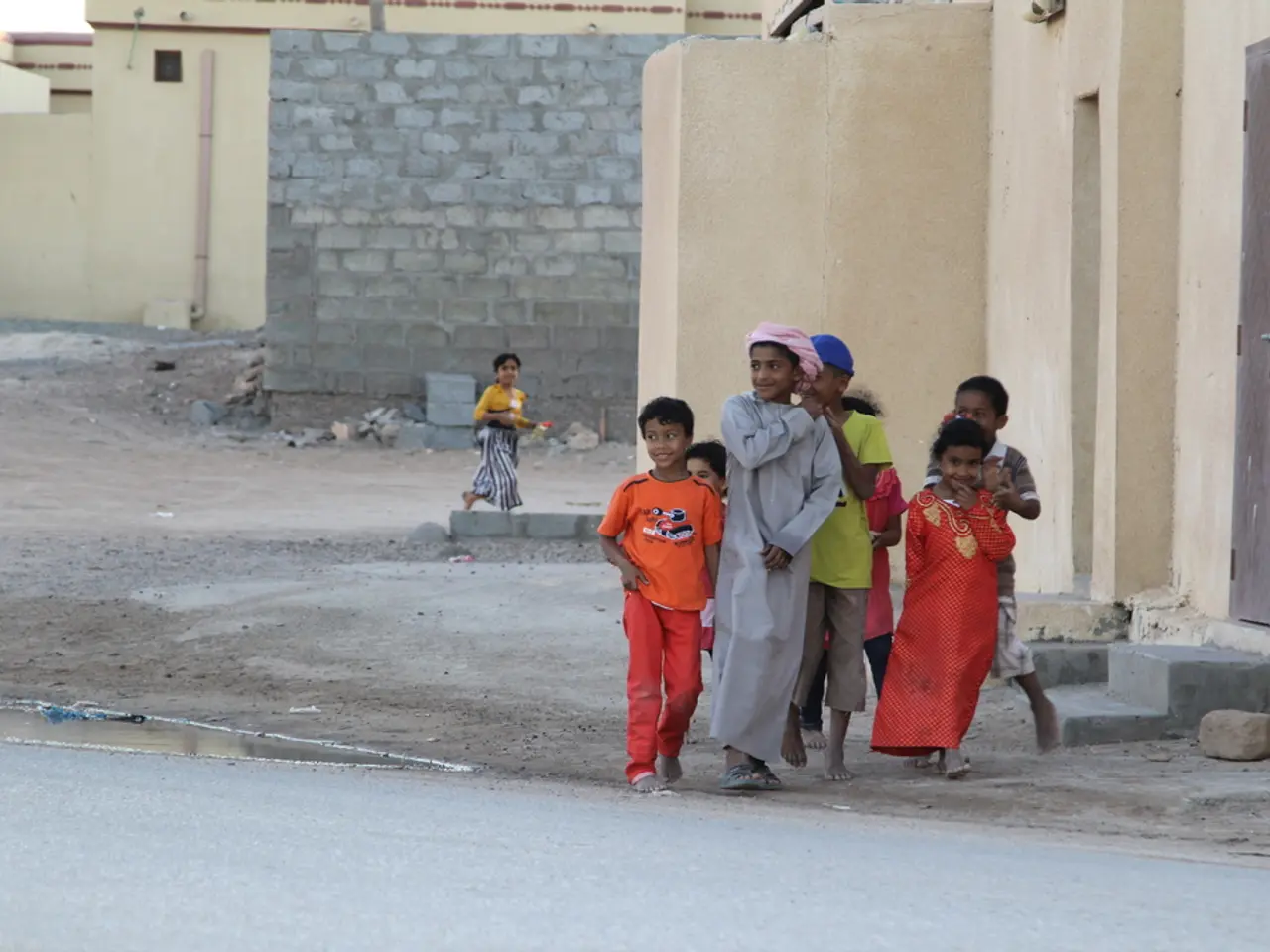The Sequential Phases of a Person's Existence
Life ain't as simple as we think, man. Each one of us experiences it differently due to the material context we're born into, like family, money, location, and so forth. By understanding these 9 life stages, we can grasp how individuals grow, learn, and change over time. Each stage presents its challenges and opportunities that shape who we become and how we perceive the world.
Are there specific stages that are crucial in our lives, like back when the psychologists were trying to classify life phases, especially during childhood? You bet! Sigmund Freud, the dad of psychoanalysis, created different stages of psychosexual development, focusing on the unconscious mind. Jean Piaget, on the other hand, established cognitive development stages, ranging from childhood to adulthood, setting the foundations for Evolutionary Psychology.
Here's a rundown of the main life stages that influence our behavior, reality perception, and needs:
- Prenatal Stage (Conception to Birth): A rapid physical growth period, where genetic and environmental factors significantly impact the baby's health. Prenatal care is vital for laying a solid foundation.
- Infancy (0 to 2 Years): Dependent on caregivers, rapid development in motor skills, emotional bonding, and sensory awareness. During this time, babies start to recognize faces, form attachments, and explore their surroundings.
- Early Childhood (2 to 6 Years): Growth in imagination, language, and self-control. Children start to assert their independence, express emotions, and form social connections.
- Middle Childhood (6 to 12 Years): Focus on academic learning, peer relationships, and self-esteem. Children become logical and start comparing themselves to others.
- Adolescence (12 to 18 Years): A time of identity exploration, emotional intensity, and physical changes. Individuals question authority, values, and their place in society.
- Early Adulthood (18 to 30 Years): Transitioning into adult responsibilities, such as higher education, careers, and relationships. It's also a period for emotional development and forming long-term commitments.
- Middle Adulthood (30 to 60 Years): Focus on productivity, career advancement, and family responsibilities. Many people begin to reflect on their life goals and experience the challenges of aging.
- Late Adulthood (60 to 75 Years): Often associated with retirement and reflection. Individuals assess their lives and legacies while coping with physical limitations and potential health concerns.
- Old Age (75+ Years): This final stage is marked by continued aging, potential health issues, and life reflection. Some individuals remain active, while others may require assistance or care.
Understanding these life stages helps us provide better support during development, tackle psychological challenges, and adapt our expectations and interactions with people at different life phases. It's essential to remember that each individual's experience can vary significantly due to cultural, environmental, and personal factors, but the general framework offers a useful guide for understanding human growth.
So, there ya have it! Embrace the journey through life, and keep in mind that every stage contributes to the richness of human development. Cheers!
WhatsApp, Messenger, Facebook, Twitter, LinkedIn, Reddit, Google Classroom, Email, Copy Link, Share
Related Content:
- The 5 Principles of Positive Psychology
- Mastering the Art of Closure: Navigating Life Changes Healthily
- Unraveling the Mysteries of the Unconscious Mind in Freud's 5 Stages of Psychosexual Development
- The 3 Phases of Old Age, and Their Physical and Emotional Challenges
- Does Money Lead to Happiness? Examining the Relationship Between Wealth and Well-being
- Understanding Socio-affective Well-being: What it is and How it Contributes to a Balanced Life
- Crafting a Meaningful Life: How Identity is Forged
- Developing the Healthiest Internal Dialogue for Emotional Well-being
- Learn to Cope with Nostalgia in Old Age to Maintain Positivity and Balance
- Harnessing the Power of Life Review for Personal Growth and Satisfaction in Late Adulthood and Beyond
- Embracing the journey of life, we can look to the field of psychology for insights on our mental health, particularly the stages of development that influence our behavior, perceptions, and needs.
- In childhood, specific stages are crucial for shaping an individual's emotional and cognitive development, as explored by Sigmund Freud in his psychosexual development stages and Jean Piaget in his cognitive development stages.
- From prenatal stage to old age, each phase presents unique challenges and opportunities that contribute to personal growth and shape who we become.
- Understanding these life stages can help us provide better support during development, tackle psychological challenges, and adapt our expectations and interactions with people at different phases of life.
- As individuals grow older, they may find solace in activities such as gardening, hobbies found in the home-and-garden section, or nurturing pets that provide companionship in the golden years.
- Life's stages also impact our relationships with others, and self-development may be enhanced through education, career development, and personal growth resources available online, like workshops on personal-growth or educational platforms like Google Classroom.
- To maintain a balanced lifestyle, we should pay attention to our emotional well-being by seeking help when needed, being mindful of our thoughts, and engaging in self-care practices like mindfulness exercises and regular exercise.
- Our mental health is also affected by our lifestyle choices, and it's essential to consider the impact of food-and-drink on our overall well-being, as well as proper nutrition for aging.
- As we travel the world, explore new cultures, and meet different people, we expand our worldview and gain insights into diverse perspectives, enriching our lives and personal growth, all while embracing the beauty of fashion-and-beauty found in the cities we visit.






